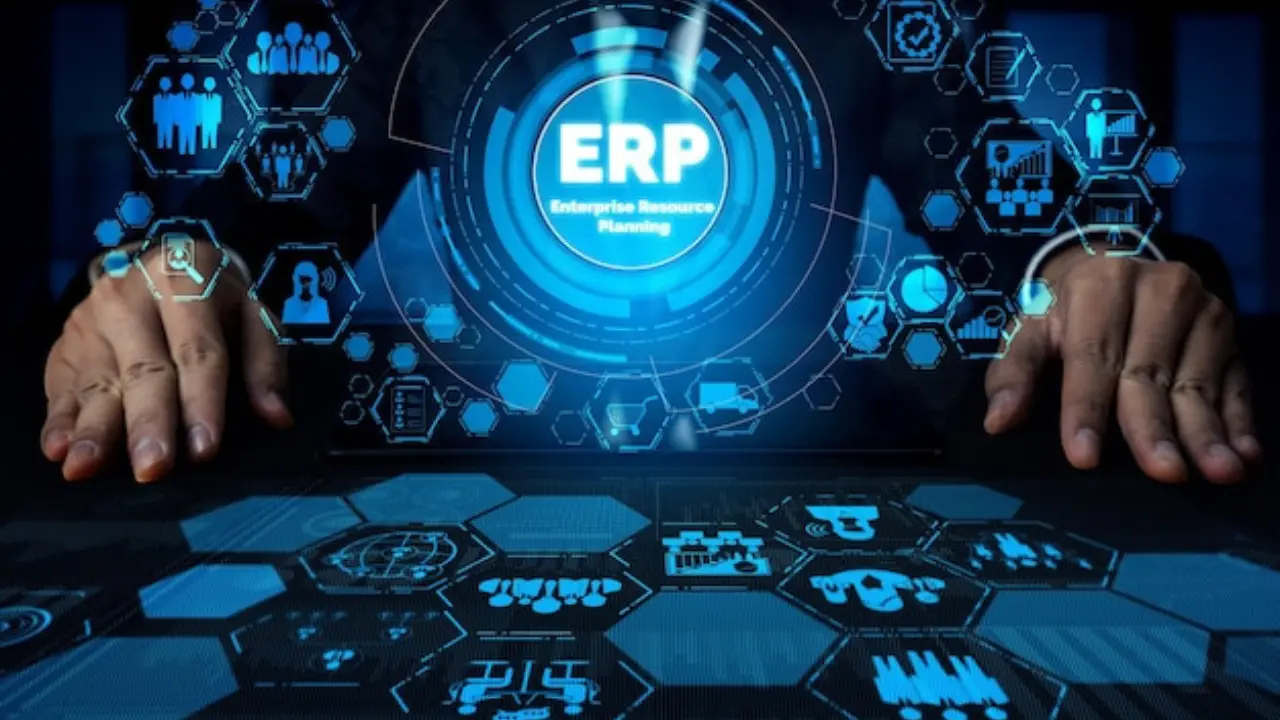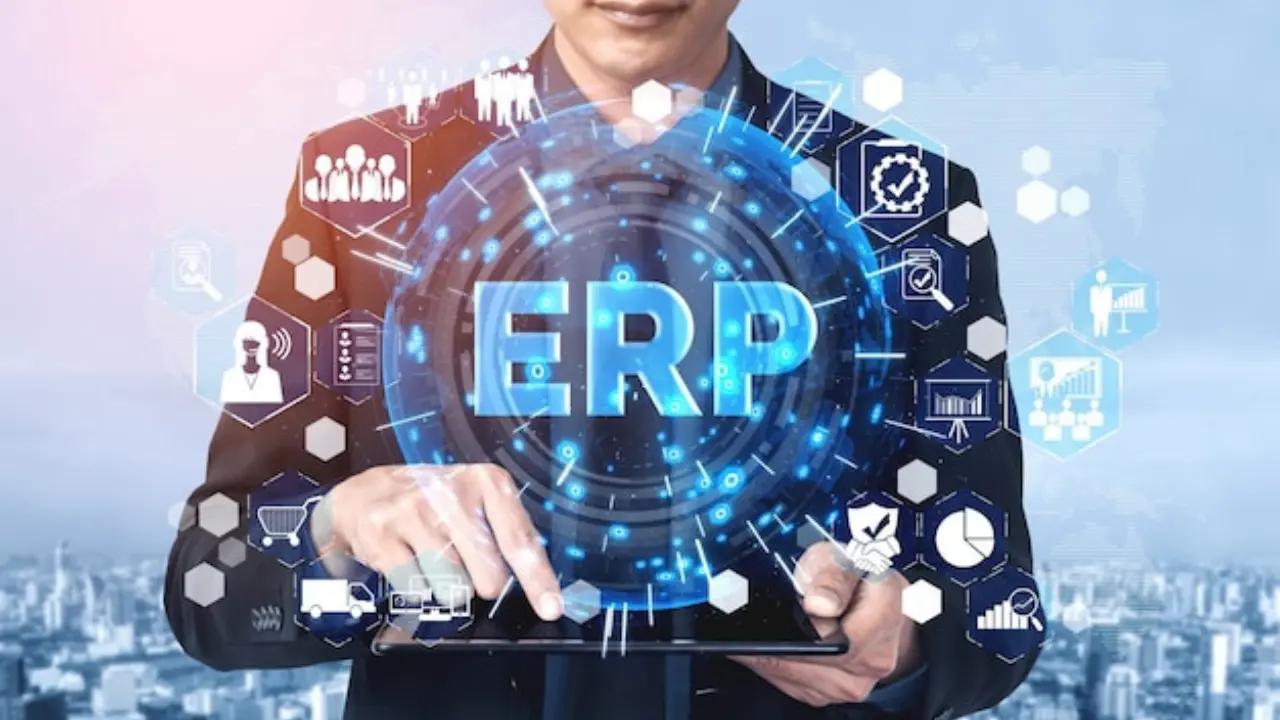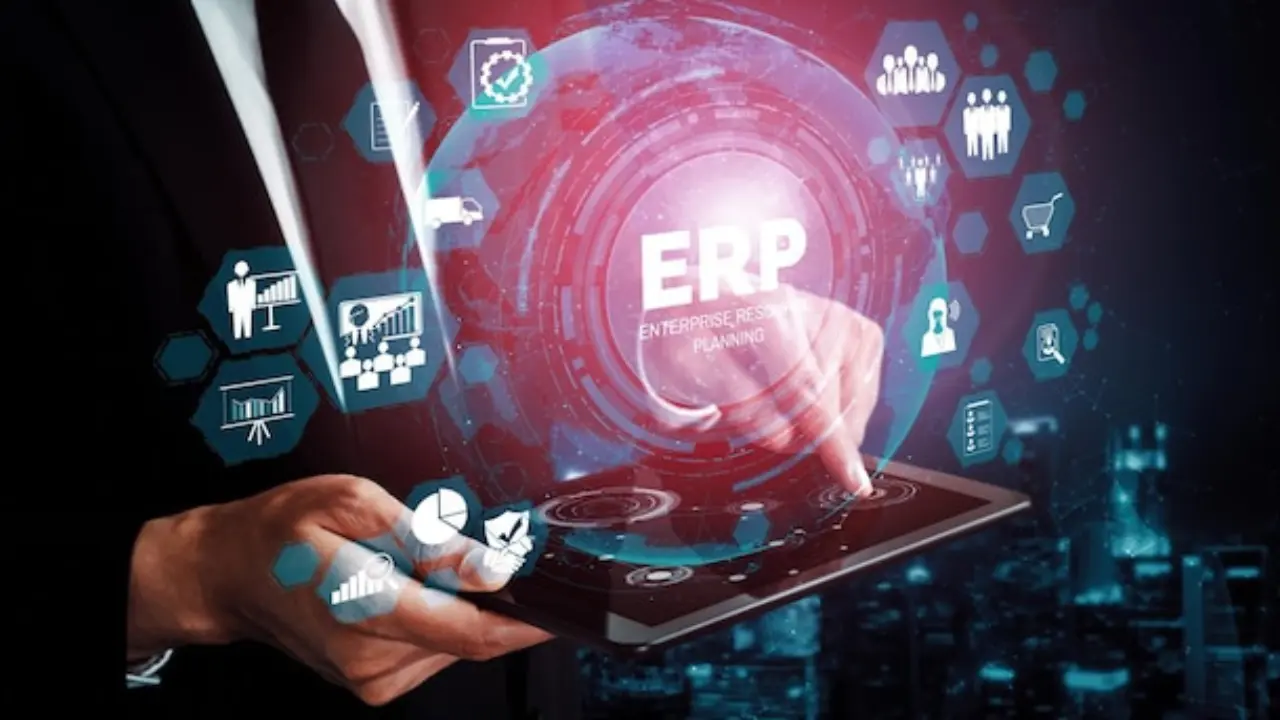

Which Is the Best ERP Software in Pune for Big Brands?
Choosing the right and best ERP software in Pune for big brands is not as easy as it sounds. So, you have to look for multiple things in your selected company like their testimonial, reviews, company profiles, demos, software developers' expertise, and so on. Thus, we are here to work for you and provide you with the best-suited software with its detailed features and modules.
Therefore, each company has different requirements and they need a specialized type of ERP solution to streamline its efficiency. Consequently, choosing the right types of ERP software for businesses is mandatory and essential at the same time. Organizations in the present business environment require tools and devices to deal with operations and daily tasks effectively.
Enterprise Resource Planning (ERP) System is a business management software designed to integrate and enhance different parts of your organization, from supply chain management to inventory control and financial management. Unlike ERP solutions functioned in real-time data, business intelligence, and integrated machine learning capabilities.
ERP caters to various industries and businesses, including consumer products, retail, manufacturing operations, and government sectors. While choosing an ERP system, consider a few factors like the organization’s functionalities, features, cost, budget, and industry-specific needs.
Via cautiously assessing these factors, organizations can limit their ERP choices and select the best solutions that align with their business requirements.
This blog will explore the various types of ERP software that are crucial for you to understand and then find the best one for you. Additionally will introduce the best ERP software in Pune Maharashtra which is globally known for its top service.
The Top ERP Software in Pune Maharashtra
EM Production Pro is the top ERP software provider company in India, serving different industry types and niches. From procurement to inventory management, this software is perfect for your demands. It specializes in automating your company operations including HRMS, production management, expense monitoring, procurement management, asset management, logistics management, ticket management, Sales CRM module, finance and accounting management, and many other modules that are dedicated to streamlining your business's multiple operations in different areas.
Offers over 15 modules in a complete package, allowing you to focus on core areas while it provides all the necessary software to automate company tasks. Thus no need to worry about purchasing multiple tools for separate tasks, get a dedicated one with EM Production Pro and rest for a long time. Our elite-class developers have worked for big brands like yours including PVR, SONY, Lenskart, Ease My Trip, QTickets, KPMG, Map My India, Hockey India, HARMAN, etc.
Our experience makes us a reliable option to trust and become the advanced brand in your industry. You can directly contact the experts for personalized assistance and communication. Furthermore, we have discussed the various types of ERP software that will provide you with better insights over multiple types and which is the best one for you, as we are experts in all of them.
Choosing the Ideal ERP System Made Easy
Selecting the right ERP system can feel like conquering sometimes. This write-up works on exploring different ERP systems and featuring their benefits. While there’s no single “generally normal” ERP system, multi-cloud ERPs, integrating multiple cloud-based systems, are a popular decision for organizations assuming present-day modern technology. Hybrid systems with cloud applications and on-premise infrastructure offer comparative similar advantages.
The digital transformation wave has impelled cloud-based, Software-as-a-Service (SaaS) ERP systems to the forefront. These solutions, alongside add-on SaaS choices, amplify your ERP venture.
To receive the most benefits from ERP, view the various kinds of accessibility, including third-party software and additional terms. So, let's start with knowing the major types of ERP solutions and choose the best type for your business industry.
Choose the Perfect Type of ERP Software for Your Big Brand!
ERP systems come in different deployment models, each offering benefits and references. Here’s an analysis of the four most common types of ERP software.
-
On-Premise ERP Systems
An On-premise ERP system dwells on an organization’s servers, PC types of equipment, and tools. An authorized framework or license system can be upgraded, customized, and maintained by the organization’s IT group or team, nearby, guaranteeing data and control over information or data security and business operations or tasks. EM Production Pro is the best ERP software company in Pune, providing tailored on-premise ERP software to revolutionize business operations.
Advantages of On-Premise ERP System
- Cost-Adequacy - Over a long period, on-premise systems can be more practical and cost-effective because of the shortfall of progressing membership charges or subscription fees.
- Customization - Organizations have the opportunity to fit the product to their particular requirements and business processes.
- Information And Data Security - Data or information remains on-site, possibly offering a more significant level of security and safety for sensitive data or information.
- In-House Control - Organizations can have unlimited authority over the system maintenance and upgrades, lessening reliance on outer vendors or sellers.
Disadvantages of On-Premise ERP System
- High Investment - Upfront costs and expenses are expected for software licenses, equipment, and IT staff to deal with the system.
- Challenges Upgradation - Regular upgrades are important to keep up with the security and functionality, requiring free time and extra costs.
- Data Risks - In-house data backups can be susceptible to corruption, possibly endangering basic data and information.
Why Ought to an On-Premise ERP System
Organizations that focus on data security, customization, and command over their systems are ideal contenders for on-premise ERP solutions. This choice is additionally appropriate for businesses and organizations with legacy systems that are as of now paid for extensively customized systems. In any case, major areas of strong and thoroughly prepared IT groups are important to successfully manage and maintain the systems.
-
Cloud-Based ERP Systems
Cloud-based ERP systems are facilitated concerning servers managed by third-party vendors. They are available from any place with an internet connection, making them an ideal choice for remote workers and globally or geographically scattered teams. Cloud ERP is frequently alluded to and referred to as (Software-as-a-Service) SaaS due to its subscription-based pricing model.
Advantages of Cloud-Based ERP System
- Decreased Costs And Expenses - Eliminates the requirements for costly equipment and IT staff, prompting or leading to lower upfront costs.
- Scalability And Adaptability - Cloud-based systems can undoubtedly increase or decrease your business growth, offering greater adaptability and flexibility.
- Maintenance And Support - The vendor handles the systems support, maintenance, upgradation, and security freeing up your IT assets.
- Accessibility - Cloud ERP works with remote workers and whenever, anytime from anywhere it can be accessed and approved for authorized users.
Disadvantages of Cloud-Based ERP System
- Subscription Costs - While there are no upfront equipment costs, ongoing subscription charges to gather over a long time.
- Customization - Limited or Restricted Customization choices or options might be restricted or contrasted with on-premise solutions.
- Web Dependance - System accessibility is reliant upon a stable internet connection which can disrupt workflows.
Why Ought To Cloud-Based ERP System
Cloud ERP is an ideal fit for organizations looking for a modern, scalable, and cost-effective solution as it’s a great fit for organizations with developing teams or those that require remote access capacities. Also additionally, organizations with limited IT assets or those hoping to limit or minimize expenses can benefit essentially from cloud-based ERP systems.
-
Hybrid ERP Systems
A Hybrid ERP system integrates with components of both on-premise and cloud-based ERP tools. This approach permits organizations to keep up with control over sensitive data and information on-premise while leveraging and utilizing the cost-adequacy of the cloud for specific applications.
Advantages of Hybrid ERP System
- Custom Functionality - Gives a customized solution by consolidating on-premise control with cloud-based versatility and scalability.
- Adaptability and Flexibility - Organizations can use the qualities and strengths of both deployment models to meet their special and unique needs.
- Scalability and Versatility - The cloud component takes part and allows for simple and easy scaling as business requirements get advanced.
- Security- Security Delicacy and Sensitivity for Hybrid ERP systems.
Disadvantages of Hybrid ERP System
- Complexity in Management - Managing both on-premise and cloud components along with Integration and maintenance can be challenging and complex as it requires additional IT assets and expertise.
- Data Potential - Guaranteeing consistent and seamless information or flow between on-premise and cloud systems can be challenging as data inconsistencies can require delays if not managed properly.
- Security Concerns in Compliance Challenges - Having information spread across various and different conditions (on-premise and cloud) can create more potential focus on entry points for cyberattacks. Meeting data security challenges and guidelines might be more complex due to the hybrid nature of the system.
Why Ought To Hybrid ERP System
Due to cost-effectiveness and lowered upfront costs with an all-out on-premise ERP, a hybrid system requires a smaller introductory investment. Cloud-based aspects frequently utilize a subscription model, spreading costs over time. Viewpoints provide flexibility in budgeting through resource allocation based on specific needs for functionalities of both on-premises and cloud. In terms of security and compliance also leveraging the cloud-based functions can keep sensitive data on-premise for less critical functions. Additionally, to adhere the data security regulations compliance with regulations is easy for specific industries.
-
Multi-Cloud ERP Systems
A multi-cloud ERP system conveys ERP functionalities across different cloud suppliers and providers. This approach offers an expanded version of security, redundancy, and recovery capabilities. By using numerous cloud services, organizations can keep away the vendor's lock-in security and possibly benefit from the best practices, best elements, and functionalities presented and offered by various cloud suppliers. EM Production Pro is the best at creating each of these customized ERP software types by integrating the latest technology and AI advancement into them.
Advantages of Multi-Cloud ERP System
- Redundancy Upgradation - Circulating data and information across different cloud suppliers limits the downtime risks and guarantees business congruity.
- Security and Independence - Utilizing the security features of different cloud providers fortifies the security pose and organizations keep away from a single vendor, encouraging more prominent adaptability and negotiation power.
- Cost Optimization - Organizations might explicitly take advantage of competitive suppliers' prices across different cloud providers.
Disadvantages of Multi-Cloud ERP System
- Complexity - Dealing with numerous cloud environments can be more perplexing when contrasted with single-cloud deployments
- Integration Issues - Coordinating functionalities across various cloud suppliers could require additional efforts.
- Vendor Management - Depending upon the chosen cloud services, dealing with multiple vendors might be necessary.
Why Ought To Multi-Cloud ERP System
Large enterprises or organizations with severe security and data redundancy requirements can profit from multi-cloud ERP deployments. Also, organizations that require best-in-breed functionalities from different cloud suppliers could find this approach beneficial. In any case, the expanded complexity requires areas for strength with a group of IT experts overseeing multi-cloud conditions.
Conclusion
By understanding these types of ERP (Enterprise Resource Planning) software, organizations can make informed decisions and choices while choosing or selecting the solution that best aligns with their particular needs and priorities. The conclusion isn't explicit in the passage, however, the focal point is that the decision of the ERP system depends on the organization’s particular requirements.
Various types of ERP software whether On-Premise, Cloud-Based, Hybrid, or Multi-Cloud—each offer specific benefits and drawbacks as mentioned above. While considering factors like budget, customization needs, and security concerns attains a competitive advantage.
Thus to compete in this digitized marketplace, schedule your demo now and partner with the best ERP software company in Pune: EM Production Pro. Being industry experts choice, we guarantee to provide the latest and best-suited ERP solution.



